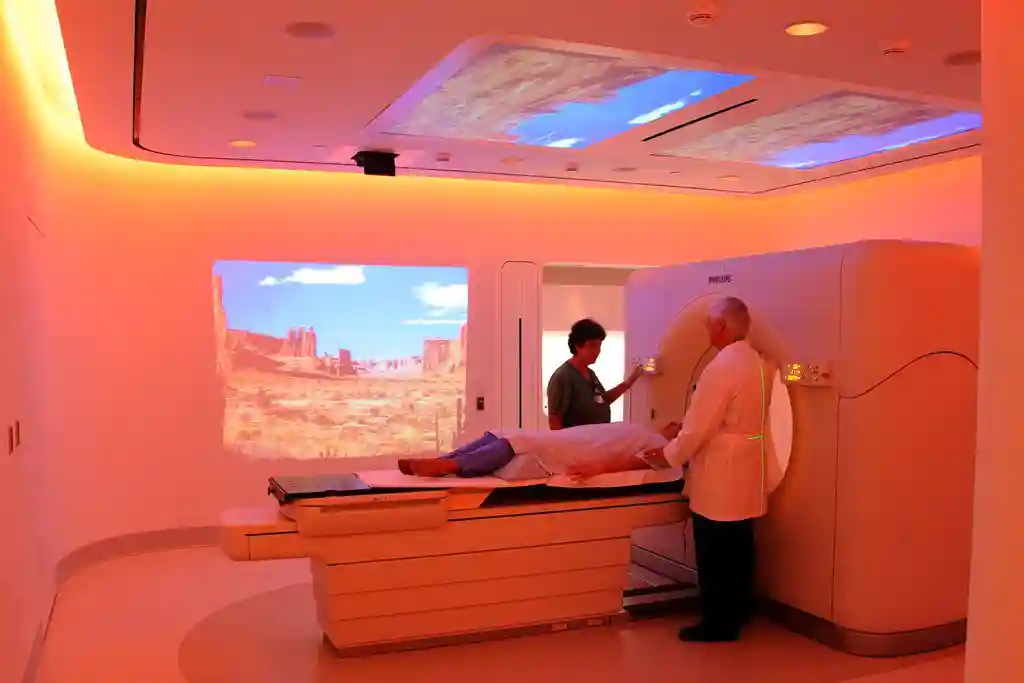Celiac.com 09/25/2025 - Digestive system cancers are among the most common and deadly forms of cancer worldwide, accounting for a large share of cancer diagnoses and deaths. Because these cancers often develop without clear early symptoms, many are diagnosed late, making them difficult to treat. Researchers have increasingly turned their attention to groups of people who may face higher risks, in order to develop prevention and screening strategies that can improve early detection.
One area of growing interest is the connection between autoimmune diseases and cancer risk. Autoimmune conditions such as celiac disease, type 1 diabetes, systemic lupus erythematosus, and multiple sclerosis involve chronic immune system activity and long-term inflammation. This constant stress on organs and tissues, combined with the effects of lifelong treatment, could contribute to the development of tumors. This systematic review and meta-analysis sought to bring clarity by carefully examining evidence from dozens of studies and accounting for potential bias in past research.
Study Purpose
Celiac.com Sponsor (A12):
The central goal of the study was to evaluate whether certain autoimmune diseases are linked to an increased or decreased risk of cancers of the digestive system. The focus was on celiac disease, type 1 diabetes, systemic lupus erythematosus, and multiple sclerosis. Researchers wanted to minimize bias in earlier findings and provide reliable estimates that could guide both doctors and patients.
Specifically, the cancers under review included the stomach, esophagus, pancreas, small intestine, liver, gallbladder, colon, and rectum. These cancers represent the majority of digestive system malignancies worldwide.
How the Study Was Conducted
To ensure thoroughness, the team conducted a systematic review of existing scientific publications across multiple databases, without restrictions on publication year. They used strict tools for assessing the quality of the studies and carefully accounted for sources of error. By combining results in a meta-analysis, they were able to analyze data from more than 1.5 million cases across 47 separate studies.
Unlike individual studies that may be limited by small sample sizes or inconsistent definitions, this approach allowed for more reliable estimates. Importantly, the researchers included extensive bias assessment, meaning they adjusted their conclusions to account for potential distortions in the data.
Main Findings
The results revealed a complex picture, with some autoimmune diseases linked to an increased cancer risk and others showing protective associations.
- Celiac Disease: Celiac patients were found to have higher risks of cancer in the pancreas, esophagus, colon, liver, and especially the small intestine. Among all associations, the strongest was between celiac disease and small intestine cancer, with risk more than four times higher than in the general population.
- Systemic Lupus Erythematosus: Patients with lupus showed elevated risks of pancreatic, liver, colon, and esophageal cancers. No increased risk was seen for stomach or rectal cancers.
- Type 1 Diabetes: This condition was linked to greater risks of stomach, pancreatic, liver, colon, esophageal, and gallbladder cancers. It was not strongly connected to small intestine or rectal cancers.
- Multiple Sclerosis: In contrast to the other diseases, multiple sclerosis showed an inverse relationship with several cancers. Patients had lower risks of pancreatic, esophageal, rectal, and colorectal cancers. The reasons for this unexpected finding are not fully understood and require further investigation.
Why Autoimmune Diseases May Influence Cancer Risk
Autoimmune diseases involve the immune system mistakenly attacking the body’s own tissues. This leads to persistent inflammation, which can contribute to cancer development by damaging cells, encouraging abnormal growth, and reducing the body’s ability to control malignant changes. Chronic inflammation is already known to be a major factor in cancer risk in conditions such as inflammatory bowel disease.
In addition, treatments for autoimmune conditions often involve medications that suppress the immune system, potentially altering how the body detects and eliminates cancerous cells. On the other hand, certain immune characteristics of diseases like multiple sclerosis may enhance cancer surveillance, explaining the observed protective effect in some cases.
Implications for Celiac Disease
For individuals with celiac disease, the study’s findings are especially important. While the risk of small intestine cancer is well-documented, this study confirmed associations with other digestive cancers, such as pancreatic and liver cancer, after adjusting for bias. This suggests that people with celiac disease may require closer long-term monitoring, even if they maintain a strict gluten-free diet.
Importantly, the study did not find evidence of increased risk for stomach or colorectal cancers in celiac patients, offering some reassurance. Still, the confirmation of risks in other organs underscores the need for awareness among both doctors and patients.
Why This Matters to Patients
People with autoimmune diseases already face the daily challenges of managing lifelong conditions. Adding the potential for increased cancer risk makes the picture even more complex. For celiac patients and those with other autoimmune disorders, these findings highlight the importance of regular medical checkups, open communication with healthcare providers, and awareness of potential symptoms that should not be ignored.
From a healthcare perspective, the results suggest that screening and preventive strategies may need to be tailored for patients with autoimmune conditions. Identifying individuals at highest risk could enable earlier detection and better outcomes. While the absolute risks for most cancers remain relatively low, the relative increase for certain digestive system cancers is meaningful enough to warrant attention.
Conclusion
This large-scale review and meta-analysis brings new clarity to the relationship between autoimmune diseases and digestive system cancers. For celiac disease, systemic lupus erythematosus, and type 1 diabetes, the study confirms elevated risks for specific cancers, particularly those affecting the pancreas, liver, esophagus, and small intestine. Multiple sclerosis, in contrast, appears to show a protective effect against several digestive cancers, though the mechanisms remain uncertain.
For people with celiac disease, these findings reinforce the importance of careful long-term monitoring and awareness. While a strict gluten-free diet remains the cornerstone of treatment, patients and doctors must also be mindful of broader health risks. Ultimately, this research is a reminder that managing autoimmune diseases is not only about controlling symptoms but also about protecting overall health through vigilance, prevention, and informed care.
Read more at: thelancet.com










.thumb.jpg.d8ccdbb71dd5d276bacf435aa9f4427d.jpg)

Recommended Comments
Create an account or sign in to comment
You need to be a member in order to leave a comment
Create an account
Sign up for a new account in our community. It's easy!
Register a new accountSign in
Already have an account? Sign in here.
Sign In Now